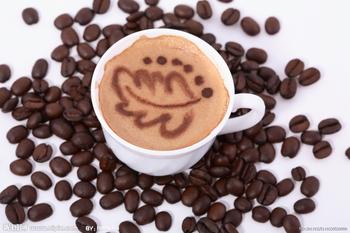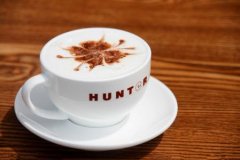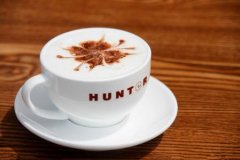The common sense of fine coffee is not suitable for drinking coffee.

"Wine and coffee, one cup after another." The deep sentiment depicted in this old song once intoxicated many people. In real life, when some people eat in a restaurant, they are used to ordering a cup of coffee after drinking. As everyone knows, good wine plus coffee will aggravate the damage caused by alcohol to the human body, and it is also very dangerous.
After drinking, alcohol is quickly absorbed by the digestive system and then enters the blood circulatory system, affecting the gastrointestinal, heart, liver and kidney, brain and endocrine systems, and leading to disorders of glucose metabolism, protein metabolism and fat metabolism in the body. among them, the most direct and serious victim is the brain. Caffeine, the main ingredient of coffee, not only stimulates the central nervous system and muscles, but also speeds up metabolism.
If you drink coffee after drinking alcohol, it will turn the brain from extreme inhibition to extreme excitement, stimulate vascular dilatation, speed up blood circulation, greatly increase the burden on the cardiovascular system, and cause many times more damage to the human body than simply drinking alcohol. Even induce high blood pressure, if coupled with emotional excitement, tension, the risk will be greater.
In fact, this is true not only for spirits, but also for wines that have a variety of health effects. Therefore, people who drink more than 30 degrees of liquor and more than 50 grams of liquor had better not drink coffee, while for those who drink a very small amount of alcohol, it is best not to drink more than one cup (200 milliliters). Within 60 minutes of drinking liquor and within 3 hours of drinking wine, the free alcohol content in the human body will reach the maximum. Don't drink coffee during this period.
Some people drink coffee after drinking is to understand the wine, in fact, the best way to relieve drunken headache is to drink honey water. Drink a cup of water with a tablespoon of honey before or after drinking. Honey contains a kind of fructose, which can promote the decomposition and absorption of alcohol and increase the content of glucose in the blood. In addition, tomato juice is also rich in fructose, and eating a tomato after drinking can also have a sober effect.
Important Notice :
前街咖啡 FrontStreet Coffee has moved to new addredd:
FrontStreet Coffee Address: 315,Donghua East Road,GuangZhou
Tel:020 38364473
- Prev

Staying up late causes dizziness and fatigue. Experts remind you not to drink strong tea and coffee.
Staying up late led to dizziness and fatigue yesterday, the reporter learned from many hospitals in this city that due to staying up late to watch football and lack of necessary rest, many fans went to the hospital one after another because of dizziness, mental malaise, weakness of limbs, loss of appetite, inability to concentrate and even excessive fatigue leading to colds and fever. In addition, fans drink beer and eat seafood while watching the game, and have diarrhea when they catch cold in the middle of the night.
- Next

Fragrance between the pros and cons of coffee
Some people say that coffee is a panacea, others say that coffee is black poison. A new study by Finnish researchers shows that drinking coffee regularly reduces the risk of diabetes, which seems to be a good footnote to the former, but in fact, whether it's jam-made Russian coffee, or floating milk-scented cappuccino, or slightly tipsy Irish coffee people care.
Related
- Beginners will see the "Coffee pull flower" guide!
- What is the difference between ice blog purified milk and ordinary milk coffee?
- Why is the Philippines the largest producer of crops in Liberia?
- For coffee extraction, should the fine powder be retained?
- How does extracted espresso fill pressed powder? How much strength does it take to press the powder?
- How to make jasmine cold extract coffee? Is the jasmine + latte good?
- Will this little toy really make the coffee taste better? How does Lily Drip affect coffee extraction?
- Will the action of slapping the filter cup also affect coffee extraction?
- What's the difference between powder-to-water ratio and powder-to-liquid ratio?
- What is the Ethiopian local species? What does it have to do with Heirloom native species?

